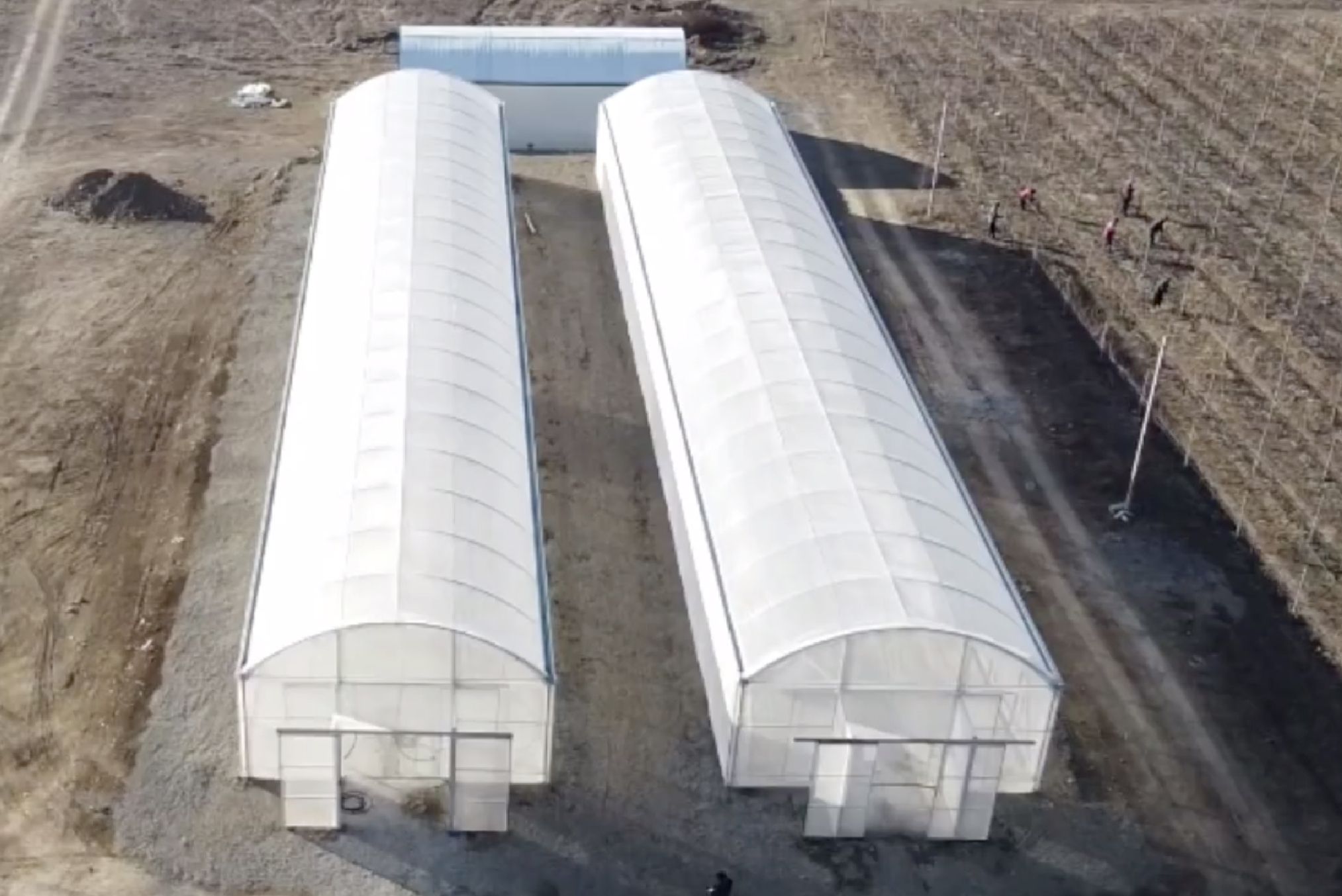
Two screen houses established in Georgia by EU and FAO
EU and FAO, under the EU4Business programme, are jointly working to support the establishment of a certification system that will improve the quality and the phytosanitary conditions of the seeds and saplings produced in Georgia, and will allow Georgian nurseries to come closer to European standards, raising its trustworthiness on the local producers. The quality of seeds and seedlings is one of the key underperforming factors in Georgia, and one of the areas where considerable improvement can be achieved with a relatively easier effort (yield per hectare).
Two screen houses with the highest standards have been established by the EU and FAO to preserve the National Repository of fruit trees and endemic grape vines in Georgia, and to improve the gene bank conditions in the Jighaura Research Station depending on the Scientific Research Center for Agriculture (SRCA), that is part of the Ministry of Environmental Protection and Agriculture (MEPA).
These screen houses, with the total area of 800 m², will allow to safely store the live collection of Georgian endemic varieties of grapes, as well as European varieties of table grapes and orchards.
From this repository, the SRCA will be able to give materials to the private sector so that these nurseries will multiply these materials and be able to produce quality certified seedlings to be later sold to the farmers and entrepreneurs in the productive sector.
Other than this physical infrastructure (screenhouses) that permit a full isolation of the live collection from the possible spread of virus through insects, the FAO project financed by the EU is supporting the technical training of the staff of the SRCA to be able to maintain this infrastructure and the full live gene bank.
“New screenhouses established with the support from the EU and FAO not only will serve as the main repositories of the quality vegetative material in the country, including many endemic varieties, but will also contribute to the quality of the saplings available for all farmers in Georgia. This is a key factor for agricultural productivity and a step forward on the path leading to the establishment of the certification system in line with the EU standards,” said Javier Sanz Alvarez, FAO-EU projects coordinator.
But the project has a clear focus on the support to the private sector, and notably the private nurseries, through the creation and support of a cluster composed of the private nurseries and seed producers. The association of seed and sapling producers, GEOSSA, was created in 2020 and is actively working in consolidating the sector through a multi-stakeholder platform including the industry, farmers, Government, and other key sector stakeholders to facilitate a private-public regular dialog to identify trends and challenges pertaining to the sector.
EU Innovative Action for Private Sector Competitiveness in Georgia Joint Programme, implemented by FAO and other UN agencies (UNDP, IOM, UNIDO), was launched in 2018. The main goal of the Programme is to enhance entrepreneurship and business sophistication by strengthening the capacities of Georgian government and local entities to develop and operate clusters and support companies directly with strategic investments.